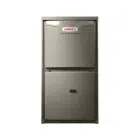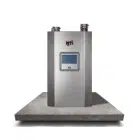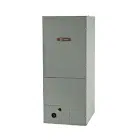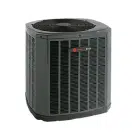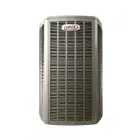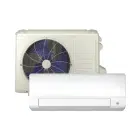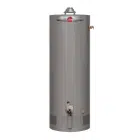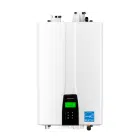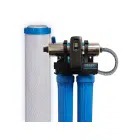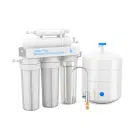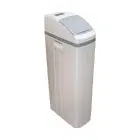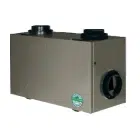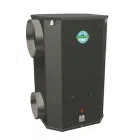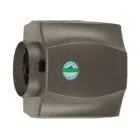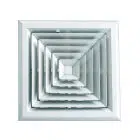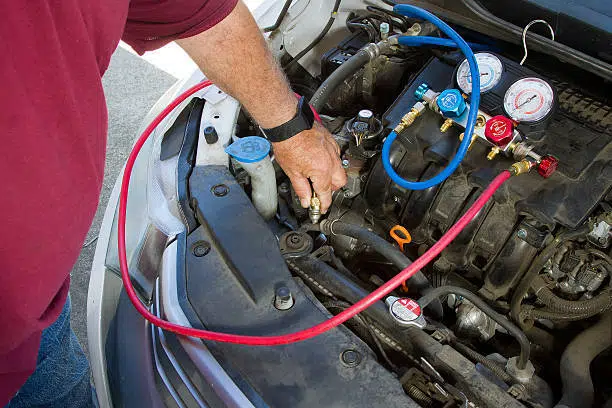
Table of Contents
Picture this: it’s a scorching summer day, the sun is blazing, and you’re eagerly anticipating the cool, refreshing comfort of your air-conditioned home. But instead of the crisp, cool air you expected, you find a puddle of water and a stuffy, humid atmosphere. This unfortunate scenario is all too common for many homeowners. Understanding why your air conditioner might be leaking water and how to fix it can save you a lot of hassle and discomfort.
In Canada, where we experience everything from humid summers to freezing winters, our HVAC systems work hard all year round. This means that keeping your air conditioner in top shape is crucial. In this article, we’ll walk you through the common causes of water leaks in air conditioners, how to address them, and preventative measures to keep your system running smoothly.
Why Air Conditioners Leak Water
To get to the root of the problem, it’s essential to understand the basic mechanics of how air conditioners operate. Air conditioners work by removing moisture from the air inside your home. This moisture collects as condensation on the evaporator coil and typically drips into a drain pan, where it is then channeled away through a drain line. When everything is working correctly, you shouldn’t see any water inside your home. However, several issues can cause this process to go awry:
- Clogged Drain Lines: Over time, the drain line can become clogged with dirt, dust, or mold, causing water to back up and spill out. This is a common cause of air conditioners leaking water inside.
- Dirty Air Filters: When air filters are clogged, the airflow over the evaporator coil is restricted, causing the coil to freeze and then leak water when it melts.
- Low Refrigerant Levels: Low refrigerant can cause the evaporator coil to freeze, leading to leaks when the ice melts. This often requires a professional to check and refill the refrigerant.
- Damaged or Rusted Drain Pans: Older units might have corroded or damaged drain pans that can’t hold water properly. This is a frequent culprit when your AC unit is leaking water.
- Improper Installation: If your AC unit wasn’t installed correctly, it might not be level, causing water to overflow from the drain pan.
Understanding these common issues can help you diagnose why your air conditioner is leaking water inside and take the appropriate steps to fix it.
Find out how you can recharge your air conditioner in our previous article via the link below.
https://thehvacservice.ca/how-you-can-recharge-your-air-conditioner/
Signs of a Water Leak
Identifying a water leak early can prevent major damage and costly repairs. Here are some signs to look out for:
- Visible Water: Puddles or damp spots around the indoor unit are clear indicators that your AC is leaking water inside.
- Increased Humidity: A noticeable rise in indoor humidity levels can be a sign that your air conditioner is not effectively removing moisture from the air.
- Unusual Noises: Gurgling or bubbling sounds from the unit often indicate that water is not draining properly.
- Poor Cooling Performance: If your AC isn’t cooling your home as effectively as it should, this could be a sign of a leaking air conditioner, as water leakage can affect the unit’s efficiency.
By recognizing these signs early, you can address the issue before it leads to more significant problems.
Check out common signs that it is time to replace your AC unit.
Step-by-Step Solutions
Turn Off the Air Conditioner
Safety first! Before you start inspecting or fixing anything, turn off your AC unit. This prevents any electrical hazards and stops the system from potentially causing more damage. It’s a simple but crucial first step when dealing with an AC unit leaking water.
Inspect and Clean the Drain Line
One of the most common causes of water leaks is a clogged drain line. Here’s how you can tackle it:
- Locate the Drain Line: Typically, you’ll find it near the indoor unit, connected to the drain pan. It’s a small pipe that leads outside or to a drainage system.
- Unclog the Line: Use a wet/dry vacuum to remove the clog. Attach the vacuum to the end of the drain line and turn it on for a few seconds to suck out any debris. Alternatively, you can use a pipe cleaner or a long, flexible brush to clear the blockage. This step is crucial in preventing your air conditioner from leaking water inside.
- Flush the Line: Pour a mixture of vinegar and water (50/50) through the drain line to kill any mold or algae. Regularly flushing the line can prevent future clogs and ensure smooth drainage.
By keeping the drain line clear, you can significantly reduce the chances of your AC unit leaking water.
Check and Replace the Air Filter
A dirty air filter can cause a multitude of problems, including water leaks. Here’s how to keep it in check:
- Locate the Air Filter: It’s usually found near the return air duct or inside the air handler unit.
- Inspect the Filter: If it looks dirty or clogged, it’s time for a replacement. A dirty filter restricts airflow, causing the evaporator coil to freeze and eventually leading to water leaks.
- Replace the Filter: Slide out the old filter and insert a new one, ensuring it fits snugly. Make sure to check the filter size and type recommended for your unit.
Regularly replacing your air filter (typically every 1-3 months) can prevent many common AC issues and help you avoid the hassle of an AC leaking water inside.
Examine the Drain Pan
Next, take a look at the drain pan:
- Inspect for Damage: Look for cracks, rust, or any signs of wear and tear. A damaged drain pan can’t hold water properly, leading to leaks.
- Temporary Fixes: For small cracks, you can use a waterproof sealant as a temporary fix. This can help you manage the problem until you can replace the pan.
- Permanent Solution: If the drain pan is severely damaged, it’s best to replace it. This might require professional help, especially if the pan is difficult to access or requires specific tools to remove.
A thorough examination of the drain pan can help you determine if it’s the source of your leaking air conditioner.
Check Refrigerant Levels
Low refrigerant can cause your evaporator coil to freeze, leading to water leaks when it melts. Here’s what you can do:
- Identify Signs: Frost on the evaporator coil, hissing noises, or a noticeable drop in cooling efficiency are signs of low refrigerant. This often results in an air conditioner leaking water inside as the ice melts off the coil.
- Call a Professional: Handling refrigerant requires specialized knowledge and tools, so it’s best to call in an HVAC technician to check and refill the refrigerant. Low refrigerant levels typically indicate a leak, which should be repaired by a professional.
By ensuring your refrigerant levels are correct, you can prevent your AC unit from leaking water and maintain its cooling efficiency.
Ensure Proper Installation
Sometimes, the issue might stem from how the unit was installed:
- Check the Level: Use a level to ensure your AC unit is properly installed. An uneven unit can cause water to overflow from the drain pan, leading to leaks.
Professional Inspection: If you suspect improper installation, it’s wise to have a professional inspect and rectify any issues. Proper installation is crucial for the optimal functioning of your air conditioner and to avoid problems like an AC leaking water inside.
When to Call a Professional
While many water leaks can be fixed with some DIY effort, certain problems require a professional’s touch. Here are some scenarios where you should definitely call an expert:
- Refrigerant Leaks: These need to be handled by certified professionals. Refrigerant leaks not only cause your AC to underperform but can also be hazardous.
- Major Installation Flaws: If the unit was installed incorrectly, it might need to be re-installed. A professional can ensure your unit is level and all components are correctly positioned.
- Persistent Leaks: If you’ve tried everything and the unit is still leaking, it’s time for a professional assessment. Continuous leaks can indicate deeper issues that need expert attention.
HVAC Service Solutions is always at your service for professional air conditioner repairs in Canada. Our team of experts is equipped to handle any complex issues, ensuring your system is back to optimal performance as quickly as possible.
Preventative Maintenance Tips for Your AC
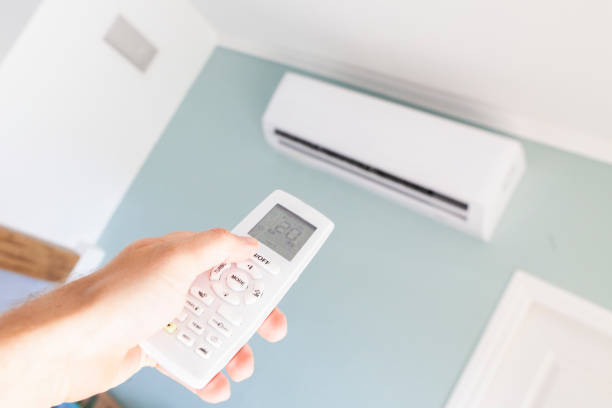
Regular maintenance is essential for keeping your air conditioning (AC) unit running efficiently and preventing issues such as leaks. Here are five key tips for effective preventative maintenance:
Thorough Inspection: A comprehensive inspection by a professional service includes checking all critical components such as the evaporator coil, drain line, and refrigerant levels. This ensures everything is in working order and helps identify potential issues before they become serious.
Regular Cleaning: Keep your AC unit clean by ensuring that the evaporator and condenser coils are free of dirt and debris, which can accumulate and reduce efficiency. Additionally, replace or clean air filters every 1-3 months to maintain proper airflow.
Check and Clear the Drain Line: Ensure that the drain line is clear and free of obstructions to prevent water backup and leaks. This simple step can prevent one of the most common causes of AC leaks.
Performance Check: Regularly verify that your AC unit operates at peak efficiency by checking the thermostat calibration, inspecting and tightening electrical connections, and lubricating moving parts. This helps in lowering energy bills and extending the life of your AC unit.
Professional Maintenance: Schedule professional AC maintenance at least once a year, ideally before the peak cooling season. This proactive approach helps in identifying and addressing potential problems early, ensuring your AC system remains reliable and efficient.
By following these preventative maintenance tips, you can keep your AC system in top shape, avoid common issues, and enjoy a comfortable indoor environment year-round.
Conclusion
Dealing with a leaking air conditioner can be frustrating, but with the right knowledge and approach, it’s a manageable issue. By understanding the common causes of water leaks, knowing how to fix them, and taking preventative measures, you can keep your home comfortable and your AC unit running smoothly.
Remember, regular maintenance is key, and sometimes calling a professional is the best course of action. If you’re experiencing persistent issues or need expert advice, don’t hesitate to reach out to us at HVAC Service Solutions. Our team is here to help you keep your home cool and comfortable, no matter what the Canadian weather throws at you.
Frequent Asked Questions
Why is my air conditioner leaking water inside my house?
Air conditioners typically leak water inside due to several common issues. The most frequent cause is a clogged drain line, which can become blocked with dirt, dust, or mold, preventing water from draining properly and causing it to overflow. Another common issue is a dirty air filter; when the filter is clogged, airflow over the evaporator coil is restricted, leading to the coil freezing and then leaking water when it melts. Low refrigerant levels can also cause the evaporator coil to freeze, resulting in leaks when the ice thaws. Additionally, damaged or rusted drain pans that can’t hold water properly can lead to leaks. Lastly, improper installation, such as the unit not being level, can cause water to overflow from the drain pan.
What should I do if my AC unit is leaking water?
If you notice your AC unit leaking water, the first step is to turn off the unit to prevent any further damage or electrical hazards. Next, check for visible signs of the problem, such as a clogged drain line, a dirty air filter, or a full or damaged drain pan. You can try unclogging the drain line using a wet/dry vacuum or flushing it with a vinegar-water solution. Replace any dirty air filters, as this can improve airflow and prevent the evaporator coil from freezing. If the issue persists despite these efforts, it is advisable to call a professional HVAC technician to diagnose and fix the problem. Persistent leaks can indicate deeper issues that require expert attention.
How often should I replace my AC air filter?
Replacing your AC air filter regularly is crucial for maintaining efficient airflow and preventing issues that can lead to water leaks. It is generally recommended to replace the air filter every 1-3 months, depending on factors such as usage, the presence of pets, and indoor air quality. Regular replacement helps ensure that the evaporator coil does not freeze due to restricted airflow, which can lead to water leaks when the ice melts. A clean filter also improves the overall efficiency and performance of your AC unit, reducing energy consumption and extending the lifespan of the system. Mark your calendar or set reminders to check and replace the filter regularly to avoid potential problems.
Can I clean the AC drain line myself?
Yes, you can clean the AC drain line yourself, which is a relatively simple process. First, locate the drain line, which is typically near the indoor unit, connected to the drain pan. Use a wet/dry vacuum to remove any clogs from the drain line by attaching the vacuum to the end of the line and turning it on for a few seconds to suck out any debris. Alternatively, you can use a pipe cleaner or a long, flexible brush to clear the blockage manually. After unclogging the line, flush it with a mixture of vinegar and water (50/50) to kill any mold or algae and prevent future clogs. Regularly cleaning the drain line can prevent water from backing up and causing leaks.
What are the signs of a refrigerant leak?
Refrigerant leaks in an air conditioner can lead to several noticeable signs. One of the most obvious signs is frost or ice buildup on the evaporator coil, which occurs because low refrigerant levels cause the coil to get too cold. You might also hear hissing or bubbling noises from the unit, which indicate a refrigerant leak. Another common sign is a noticeable drop in cooling efficiency; your AC might run continuously but fail to cool your home effectively. Low refrigerant levels can also cause the evaporator coil to freeze and then leak water when the ice melts. If you suspect a refrigerant leak, it’s essential to call a professional HVAC technician to inspect and repair the leak, as handling refrigerant requires specialized knowledge and tools.
Why is my air conditioner leaking water outside?
While some water dripping outside from your air conditioner is normal due to condensation, excessive leakage can indicate underlying issues. A clogged drain line is a common cause, as it forces water to back up and overflow. Another possibility is low refrigerant levels, which cause the evaporator coil to freeze and subsequently leak water when the ice melts. Additionally, if the unit is not level, water might not drain properly, leading to leaks outside. To address these issues, ensure the drain line is clear and clean, check and replace dirty air filters, and have a professional inspect and refill refrigerant levels if necessary. Regular maintenance can help prevent excessive water leakage outside.
How can I prevent my air conditioner from leaking water?
Preventing your air conditioner from leaking water involves regular maintenance and timely interventions. First, replace the air filter every 1-3 months to ensure proper airflow and prevent the evaporator coil from freezing. Regularly clean the drain line by using a wet/dry vacuum or flushing it with a vinegar-water solution to prevent clogs. Inspect the drain pan periodically for signs of damage or rust and replace it if necessary. Ensure that your AC unit is installed correctly and is level to facilitate proper drainage. Scheduling regular professional maintenance can help identify and address potential issues before they lead to water leaks, ensuring your system operates efficiently.
What is the role of the drain pan in an air conditioner?
The drain pan in an air conditioner plays a crucial role in the condensation process. It is located beneath the evaporator coil and collects the water that condenses as the coil cools the air. This water then drains out through the drain line. If the drain pan is damaged, rusted, or cracked, it cannot hold the water properly, leading to leaks. Regular inspection of the drain pan is essential to ensure it is in good condition. For minor cracks, a waterproof sealant can provide a temporary fix, but for severe damage, replacing the drain pan is the best solution. Maintaining the integrity of the drain pan helps prevent water leaks and ensures efficient operation of your air conditioner.
How does improper installation cause my AC to leak water?
Improper installation of your AC unit can lead to water leaks due to several factors. If the unit is not level, water may not drain correctly from the drain pan, causing it to overflow. Incorrect positioning of the drain line can also result in improper drainage and water backup. Additionally, if the unit is installed without proper insulation, it can lead to condensation forming on parts of the system, which can then drip and cause leaks. Ensuring your AC unit is installed correctly by a professional is crucial to prevent these issues. A professional can verify that the unit is level, all components are properly connected, and the system is insulated appropriately.
When should I call a professional for a leaking air conditioner?
You should call a professional for a leaking air conditioner when you encounter issues that go beyond basic troubleshooting. If you suspect a refrigerant leak, which can be hazardous and requires specialized handling, a certified technician should be contacted. Major installation flaws, such as the unit not being level or incorrectly positioned, also necessitate professional intervention. Additionally, if you have tried basic fixes like cleaning the drain line and replacing the air filter but the unit continues to leak, it’s time for a professional assessment. Persistent leaks can indicate deeper issues that need expert attention. HVAC Service Solutions is always at your service for professional air conditioner repairs in Canada, ensuring your system operates smoothly and efficiently.
Share

